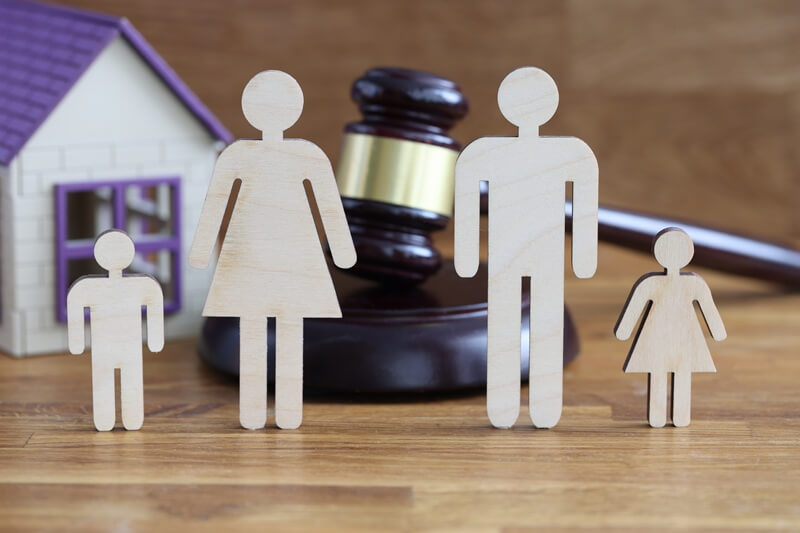What Are The Steps In A Personal Injury Case?
What Are The Steps In A Personal Injury Case?
A car crash, slip and fall, or other unexpected incident can leave injury victims feeling burdened. In Virginia, personal injury laws hold negligent parties accountable for the harm they cause. It relies on key principles, such as duty of care, breach, causation, and damages, to establish liability and pursue fair compensation. Understanding this framework helps you take the first step toward regaining control of your situation.
Here, you’ll learn the essential steps for pursuing a personal injury claim in Virginia, from seeking medical care to navigating the possibility of trial. If you’re considering legal action, this guide will help you understand what to expect and how to prepare for the process.

Seek Immediate Medical Attention
After an accident, your well-being should always come first. Seek prompt medical care to treat your injuries before they worsen and protect your health and recovery. These medical visits also create records that directly link your injuries to the accident. You can demonstrate the severity and cause of your injuries with detailed medical documentation. This evidence proves essential when negotiating with insurance companies or presenting your case in court.
Even if you don’t feel injured immediately, you must schedule a medical evaluation. Some injuries, like whiplash or internal trauma, may not show symptoms right away. A thorough examination can detect these hidden issues early, ensuring your health and strengthening your claim. After completing your medical treatments, you can focus on protecting your legal rights and assessing your case’s potential.
Consult A Personal Injury Attorney
Consulting a personal injury lawyer early after an accident helps you decide how to pursue the case. An attorney provides initial consultations to review the details. During this meeting, they ask about the accident’s circumstances and examine evidence such as police reports, medical records, and photos. You can also discuss your injuries and how they have affected your life.
An attorney uses this information to evaluate the strength of your claim. They determine whether the other party breached their duty of care, caused your injuries, and assess the extent of your damages. If your case has merit, the attorney guides you in gathering any missing documentation, including additional witness statements or professional evaluations.
Lawyers organize the evidence and identify legal strategies that comply with Virginia’s personal injury laws. They also guide your communications with insurance companies to protect you from making statements that could weaken your case. After carefully evaluating and organizing the claim, you can move forward with formal action.
File The Complaint
Filing a personal injury claim formally initiates the legal process for seeking compensation. This step begins with notifying the at-fault party and their insurance company of your intent to pursue damages. Your attorney typically drafts and submits a detailed letter outlining the nature of the accident, your injuries, and the compensation you seek.
Injured victims must file a personal injury claim within a fixed timeframe. In Virginia, you have two years from the date of the injury to file, with a few limited exceptions. Missing this deadline could dismiss your case, regardless of how strong the evidence is. Filing on time protects your right to seek compensation for medical expenses, lost wages, and other losses caused by the accident.
After filing the claim, initial communication with the at-fault party’s insurance adjuster begins. This phase involves answering questions and providing documentation to substantiate your injuries and damages. Your attorney ensures this communication remains professional and focused. The process then moves into evidence-sharing between both parties to scrutinize each other’s positions.
Go Through The Discovery Process
Once a claim is filed, the process shifts to discovery. This phase allows both sides to exchange evidence and gather the information needed to strengthen their positions. This may include providing medical records, accident reports, photographs, and other relevant materials. Both parties use these documents to substantiate their claims and defenses.
Discovery can take many forms, including depositions and interrogatories. Depositions involve sworn, out-of-court testimony from witnesses, including the parties involved. Additionally, interrogatories consist of written questions that the other side must answer under oath. Once discovery is complete, both sides become better equipped to explore resolution options.
Seek Mediation & Settlement Or Proceed To Trial
As the case progresses, parties may reach an agreement outside court or prepare for a trial. This stage demands careful consideration, as it significantly impacts the time, costs, and outcomes involved.
Mediation & Settlement
Mediation is a collaborative effort to resolve disputes without a trial. In this process, a neutral mediator facilitates discussions between you and the opposing party to explore potential settlement terms. The mediator helps identify common ground and guides negotiations, though they do not make binding decisions. This method can be quicker and less adversarial than litigation.
Settlements reached during mediation allow both sides to avoid the time and financial burdens of court proceedings. They also provide a degree of certainty, as trials carry inherent risks and unpredictable outcomes. However, mediation can only work when both parties are willing to compromise, which may not always be the case.
Trial Preparation & Process
When settlement efforts fail, trial preparation begins. This phase involves fine-tuning the strategy for effectively presenting your case in court. Attorneys focus on organizing evidence, preparing witnesses, and developing arguments highlighting your claim’s most substantial aspects.
The trial is structured, including opening statements, evidence presentation, witness examinations, and closing arguments. In Virginia, judges or juries deliberate based on the evidence and arguments presented to determine the outcome. Trials can take time and require effort, but they are necessary to achieve a fair resolution.
This stage represents the final step for civil actions that proceed to trial. However, some situations may require additional actions after the verdict to ensure all legal options are thoroughly explored.
Pursue Post-Trial Actions & Appeals
A trial’s conclusion isn’t always the final chapter in a personal injury case. Depending on the outcome, post-trial actions or appeals may be considered. If the court’s decision raises concerns about procedural mistakes or overlooked evidence, your attorney can file post-trial motions.
Appeals are not about retrying the case but asking a higher court to review specific legal issues. The Virginia appellate process can be complex, and navigating it requires particular skills and knowledge. Your attorney guides you through this phase, ensuring you follow procedural rules and meet deadlines.
The Irving Law Firm Streamlines The Process

The aftermath of an accident can be burdensome. Medical bills pile up, insurance companies may offer unfavorable terms, and the legal system feels like a maze. However, you don’t have to face these challenges alone. At The Irving Law Firm, we work to lift the weight off your shoulders, letting you concentrate on your recovery.
From the moment you contact us, our team provides clear guidance and unwavering support. We create a tailored strategy for your unique situation, evaluating your case to determine the best course of action, whether through settlement or trial. Our experience with Virginia’s personal injury laws ensures we leave no detail overlooked, giving you the confidence to move forward.
Communication is at the heart of what we do. We keep you informed every step of the way so you never feel left in the dark. You won’t be just another case in our file. Our team understands the stakes and is committed to securing the resolution you deserve. Let us be the partner you need to overcome this demanding time.
Summary
Navigating a personal injury case in Virginia requires understanding each step, from seeking medical care to resolving your claim. With the right legal approach, you can address an accident’s financial and emotional toll while working toward a fair resolution. Whether your case settles through mediation or requires trial preparation, following a structured process increases your chances of success.
At The Irving Law Firm, we aim to help you secure the compensation you need to rebuild your life. With our support, you’ll have a clear plan, vigorous advocacy, and the confidence to move forward. Reach out to us to begin your journey toward resolution and justice.




